If you were out on the deck in your flip flops grilling hot dogs in February, that seems about right.
The weather has been weird here in Wisconsin and Minnesota. Hardly any snow. Early summer temperatures in early March.
What does all this mean for spring lawn care? How does a warm winter affect the landscape?
Should you put down fertilizer sooner than usual? What about weed control? Is crabgrass already knocking on your door? Wait — was that a mosquito? Already??!
So many questions.
Let's get to it:
The Air is Warm! But Lawn Care Is All About the Soil
You were out on the deck grilling hot dogs because the warm air gave you major spring fever. (Also, you’ll pounce on any excuse to have a grilled hot dog.)
But lawn care like fertilizer and weed control is based on soil temperature, not air temperature.
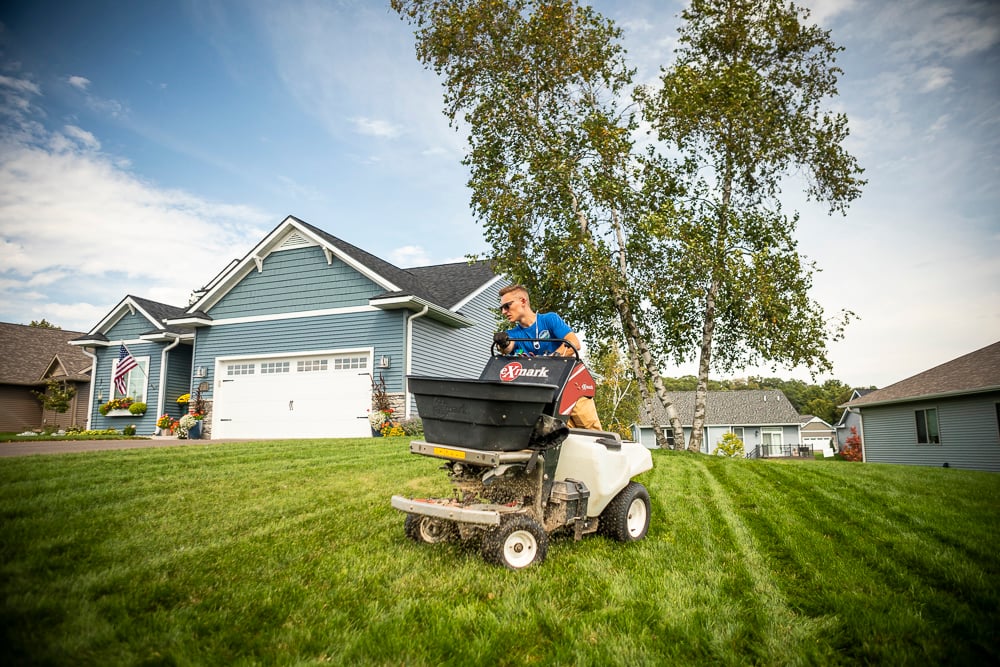
It might feel like shorts weather, but the soil is likely still cold.
On a recent early March weekend in Eau Claire, the air temperature was 70 degrees. Woo hoo! Where’s that Hawaiian shirt?
Hold the excitement. Sure, the air temperature was 70 that weekend, but the soil temperature was still just 38 degrees — far from the 50-ish degrees needed to get lawn care going.
We need 2-3 weeks of warm days in a row for that soil to warm up.
Skeptical? Take a stake or a screwdriver and push it down into your lawn. When the soil is still frozen, you’ll only go down an inch or so.
But if these warmer-than-normal temperatures keep up, the soil is likely to warm up earlier than usual this year. And the lack of snow cover this winter makes it even more likely.
How does a warm winter affect the landscape? It means an earlier start for just about everything, from clearing your lawn of debris to getting crabgrass control down.
So…
Do I Need to Start Spring Cleanup Early?
Yep. Get that debris cleared to make way for earlier spring lawn care services.
But go easy.
Lightly rake your lawn to remove dead grass, leaves, or debris. Gently, though. You don’t want to uproot your turf. It’s tender after sleeping all winter.
Warm Winter Impact: What About Crabgrass?
Crabgrass is probably the most important factor when it comes to a warm winter’s effect on lawns, as applying the weed control to prevent it is one of the first tasks of spring.
Crabgrass germinates when the soil temperature reaches 60 degrees. It’s crucial to get pre-emergent down before that happens.
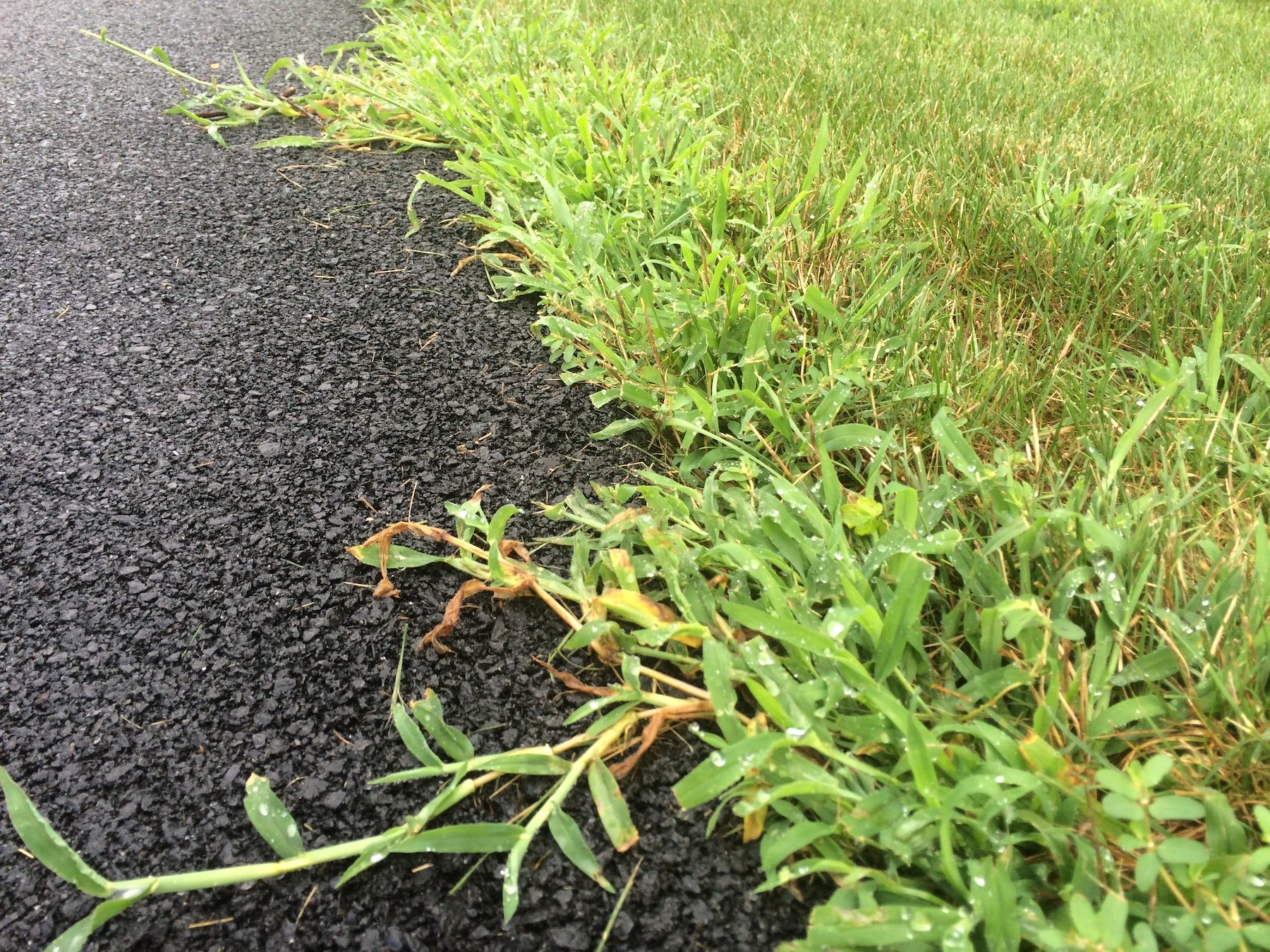
So if the soil is warmer earlier than usual, the pre-emergent needs to go down earlier than usual.
Crabgrass pre-emergent treatment is crucial — targeting those weed seeds as they germinate and take root in the soil.
But here’s an important thing to know: crabgrass pre-emergent works for about six weeks, then it’s no longer effective. So if you apply it earlier in the season, it will stop working earlier, too, leaving your lawn vulnerable to crabgrass attack.
While most lawn care companies do one crabgrass application in the spring, here at RainMaster we do two, one in early spring and another in late spring.
Double protection. Longer-lasting results. That’s extra important when warm weather swoops in early.
Warm winter problems include the early arrival of other weeds, too, like dandelions.
Most people think dandelions originate in the spring, but dandelion seeds actually germinate in late summer and early fall.
That’s why you need a complete, proactive lawn care program that includes both weed preventative and curative treatments from early spring to late fall.
Again, soil temperature is a factor with these spring preventative treatments. Start time will scoot up a bit if the mild weather sticks around and soil warns up sooner.
It’s Warm! Is It Time to Fertilize?
It’s easy to get excited about the prospect of a nice green lawn sooner than usual, and skip outside to spread that fertilizer. (Just plain walking is OK, too.)
A big warm winter impact is that everybody happily heads outside and wants to feed their brown lawns.
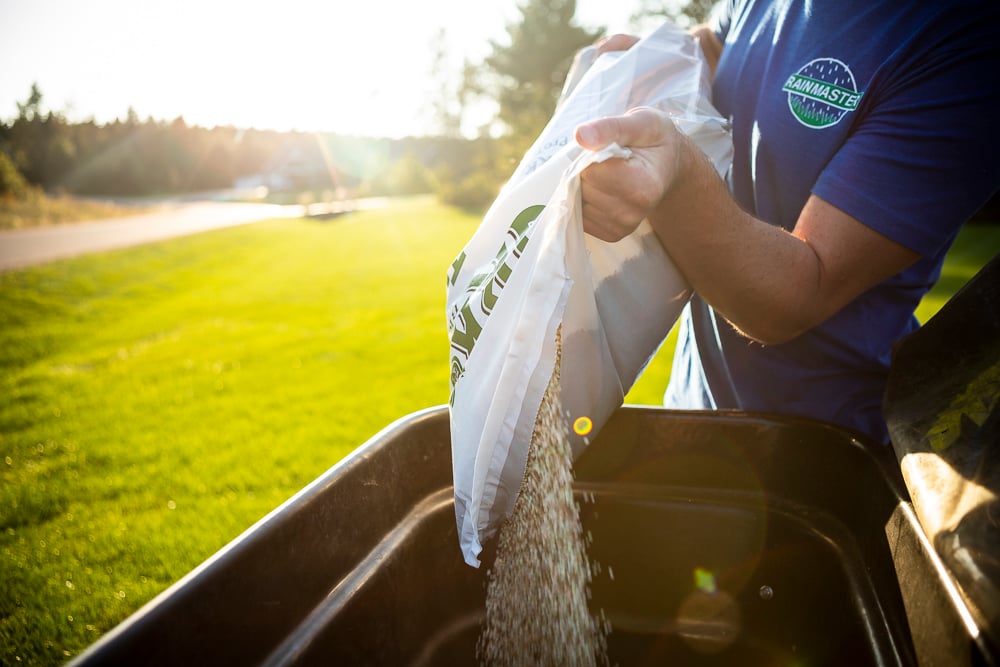
But here’s the thing: that fertilizer will only be effective if the grass is awake and ready to eat. That happens when the soil temperature reaches 50-55 degrees. Before that, your grass is still asleep.
Do you eat while you’re sleeping? Not likely. (Exceptions for sleep-walking fridge raids.)
But you’re hungry when you wake up. Same with your lawn.
If you jump the gun and put that granular fertilizer down too soon, nothing will happen. The grass has to be awake and hungry before it can take advantage of the nutrients. When the grass is ready, it’ll kick in.
When you see the grass starting to green up, that’s when the fertilizer will get to work.
What’s the Warm Winter Impact on Irrigation?
The lack of snow this winter means lawns are thirsty. We need rain.
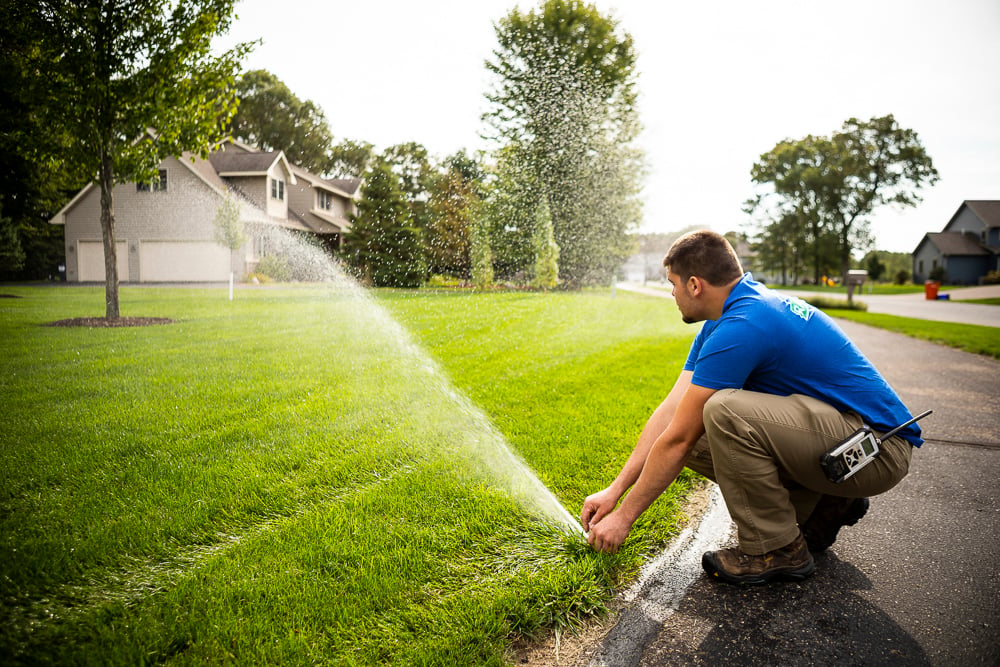
Chances are, Mother Nature will deliver enough spring rainfall to ease the drought. If not, irrigation systems might need to get to work a bit earlier this season.
Warm Winter Harm: What About Lawn Diseases?
Here’s a bit of good news: the lack of snow cover this year means no snow mold on your lawn.
Snow mold is a type of fungus that affects grass in areas of the country that get a lot of snow in the winter — like we usually do. Grayish white patches in the lawn often show up when the snow melts.
No worries this year.
Whoa — Was That a Mosquito?
Maybe. Among potential warm winter problems: pests like mosquitoes and ticks can make an aggravating early arrival.
RainMaster specialists usually apply the first application of barrier spray for the season the week before Memorial Day. But if the mild weather sticks around, that might move to earlier in May.
Zapping mosquitoes where they live and breed is the best way to battle these tiny beasts.
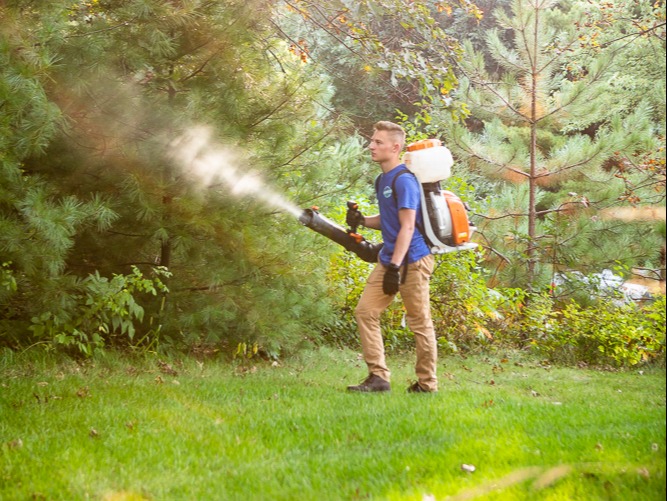
RainMaster’s barrier spray reduces mosquitoes and ticks on your property all season long, with regular visits every three weeks.
You might want to patrol your yard earlier than usual to get rid of the areas where mosquitoes like to hang out and breed:
- Remove old tires, clogged gutters, buckets, wheelbarrows, empty flower pots and any other place where water accumulates.
- Get rid of leaf litter. They love that stuff.
- Clear tall grasses and brush around your house and at the edge of your lawn.
But...Weather is Unpredictable
All this talk about early mild weather is pretty exciting. But when you live here in Wisconsin or Minnesota, you know the weather is unpredictable.
It could snow again in April. Frost can still hit in early May.
Enjoy those grilled dogs. Whistle while you do that yard cleanup a bit sooner than normal.
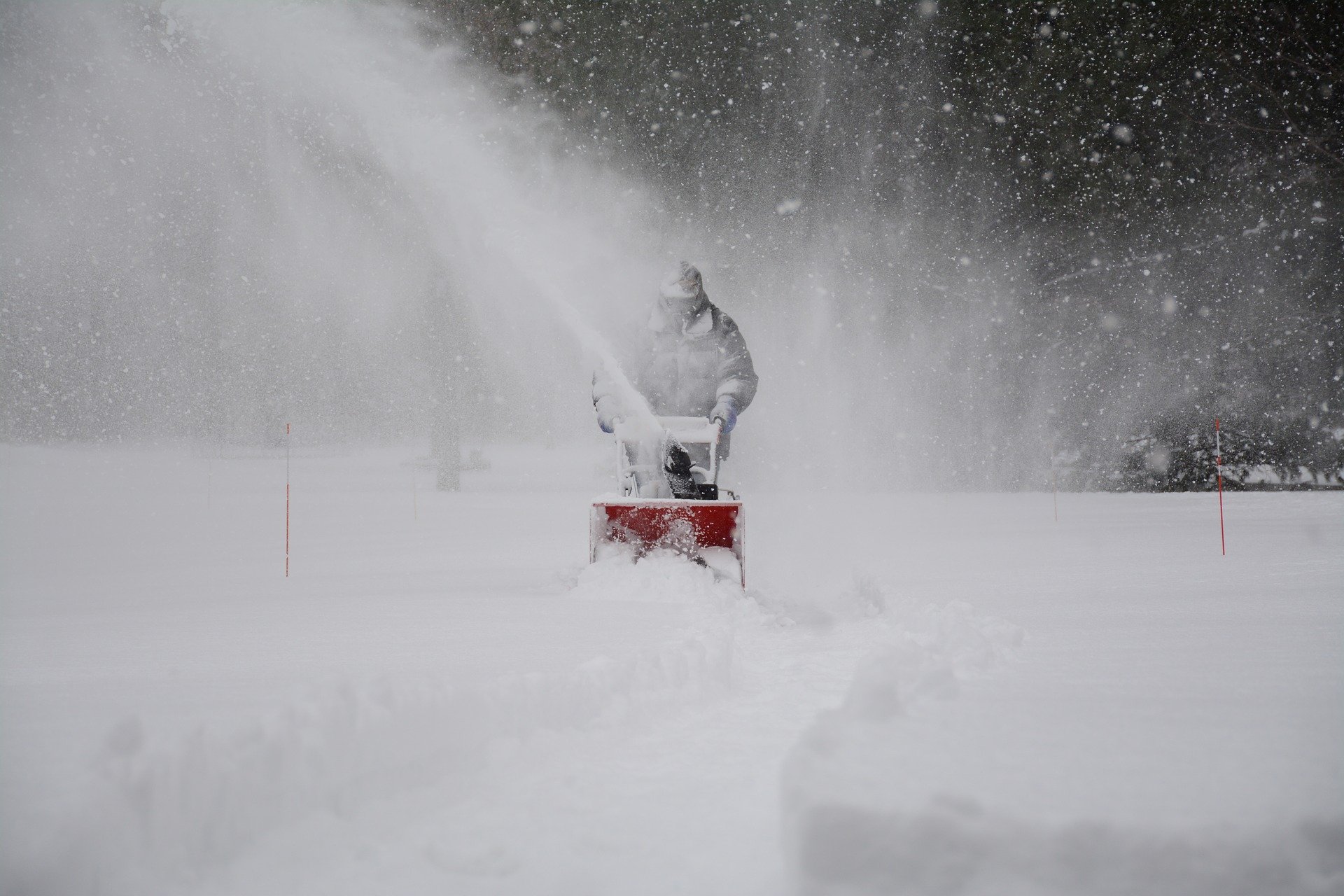
But don’t pack away the mittens just yet.
Trust Your Spring Lawn Care to RainMaster
Warm winter problems aren’t three words that usually go together. A warm winter is great, right? Grilled hot dogs in February!
But warm winter weather causes some confusion when it comes to lawn care. How do you know when the soil is warm enough to start? What if you miss that super important window for crabgrass pre-emergent?
It can be stressful. But not if you leave it all to us.
Looking for lawn care and irrigation in Minneapolis, MN & Eau Claire, WI?
Expect us to show up at just the right time to apply weed control and fertilizer, start up your irrigation system and get barrier spray to work knocking out those annoying mosquitoes and ticks.
You just keep the fridge stocked with dogs.
When you’re ready to put your trust in us, we can’t wait to meet you — and help you make the best choices for your lawn.
Want to hand over your perplexing spring lawn care tasks and be confident about your choice for lawn care services? Request a quote today! We’ll review your lawn care options together so you can make a great choice and enjoy your lawn all season long.


